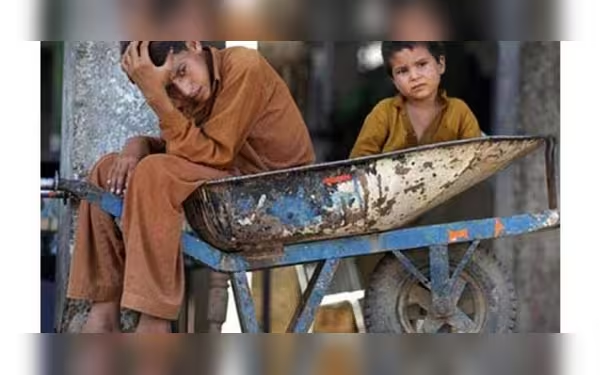Tuesday, July 2, 2024 03:10 PM
Pakistan and ILO Collaborate to Improve Labor Standards
- Pakistan's textile industry relies on exports, emphasizing labor standards
- ILO and Pakistan address forced labor, child labor, and bonded labor
- Efforts to enhance labor laws and engage stakeholders for ethical practices
 Image Credits: urdupoint
Image Credits: urdupointThe Government of Pakistan and the International Labour Organization (ILO) are working together to improve labor standards in the country, focusing on eliminating forced labor, child labor, and bonded labor. Efforts include training journalists, enhancing labor laws, and promoting fair working conditions to strengthen Pakistan's position in international trade.
The Government of Pakistan is actively working with the International Labour Organization (ILO) to ensure that labor standards are met in the country. This is particularly important for Pakistan's textile industry, which heavily depends on exports. Eliminating forced labor, child labor, and bonded labor from the supply chain is crucial to maintain good trade relationships with other countries.
Pakistan benefits from the Generalized System of Preferences Plus (GSP+) trade agreement with the European Union (EU), which is contingent upon meeting 27 labor, human rights, and environmental standards. The ILO has been present in Pakistan since 1970, facilitating discussions between employers, the government, and workers' unions to promote fair working conditions and social justice.
A recent workshop, supported by the USDOL BRIDGE project, revealed that there may be as many as 3.4 million individuals in bonded labor in Pakistan, with many cases going unreported in the media. The workshop aimed to train journalists to effectively address labor issues, potentially leading to better reporting and positive changes in workers' rights.
The ILO in Pakistan focuses on various goals, including youth employment, social protection, compliance with international labor standards, and occupational safety and health. Encouraging the formation of trade unions is a key focus, with partnerships established with organizations like the Pakistan Workers’ Federation and the Employers Federation of Pakistan.
Efforts are being made to collaborate with the governments of Sindh and Punjab to enhance labor laws, despite challenges posed by the decentralized nature of labor regulation following the 18th Amendment in Pakistan.
The ongoing collaboration between the Government of Pakistan and the ILO underscores the commitment to improving labor standards in the country. By addressing issues such as forced labor and promoting fair working conditions, Pakistan aims to strengthen its position in international trade and ensure the well-being of its workforce. Continued efforts to enhance labor laws and engage with key stakeholders demonstrate a proactive approach towards achieving sustainable and ethical labor practices in Pakistan.













